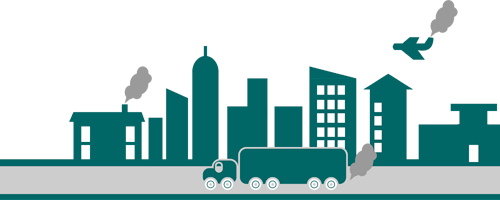Today, the House of Commons Environment, Food and Rural Affairs (EFRA) select committee have published the report of their inquiry into Air Quality. The IAQM submitted written evidence to this inquiry, and has now prepared a press release, setting out its views on this report:
Wednesday 27th April, 2016
The Institute of Air Quality Management (IAQM) supports many of the recommendations in the ‘Air Quality’ report of the House of Commons Environment, Food and Rural Affairs (EFRA) committee, released today. The report recognises that air pollution represents a “public health emergency” and calls for coordinated Government action now to tackle this problem across the UK.
The committee’s statement that “the Government must accord poor air quality a priority commensurate with the toll on the nation’s health and environment”, echoes the Institute’s view. The IAQM also agree that Defra must publish “a comprehensive strategy for improving air quality and report annually to Parliament on progress in delivering its objectives”.
The Government’s current Air Quality Plan, published in December 2015, has already been shown to be inadequate by the publication last week of the results of the Department of Transport’s diesel car emission testing following VW’s defeat device admission. Using this data Defra’s own plan suggests the number of zones exceeding the EU limit value is at least 30. Many more than the eight zones the plan is based on.
The EFRA committee report also argues that “Ministers must set out with absolute clarity the actions required across government if the public is to be reassured that the Government is committed to improving air quality quickly and substantially”. Whilst Defra and DfT last week established a joint air quality unit, it should also, as a minimum, have included the Treasury and Department of Health.
Diesel engines are the dominant cause of poor air quality. A scrappage scheme represents one of several measures which the Government could implement to tackle the problem of pre-Euro 6/VI diesel vehicles.
With regard to agricultural emissions, the Institute shares the committee’s view that “better use could be made of Common Agricultural Policy money to achieve air quality improvements”.
Dr Claire Holman, Chair of the IAQM said:
“Our members are frustrated by the lack of priority given to improving air quality in our cities by this, and the last, government. Air pollution contributes to the death of tens of thousands of people each year but this does not seem to result in effective Government action. The Government’s Air Quality Plan is overly optimistic and inadequate for solving this issue in the shortest possible time”.



